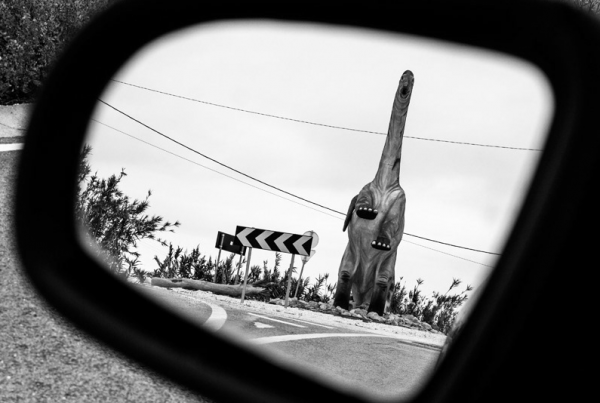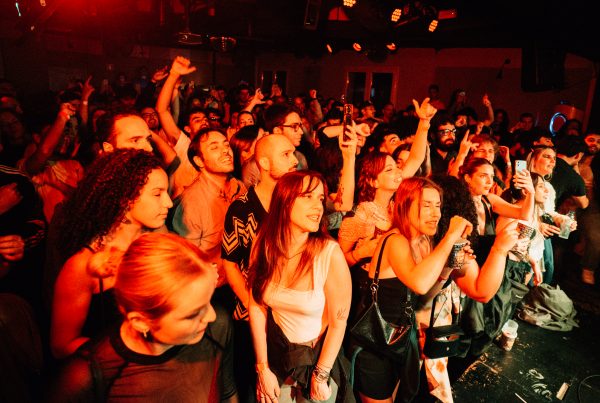Há uns dias, numa grande jantarada com artistas locais da cena lisboeta, a minha presença causou espanto e desconforto por causa do meu trânsito entre o mundo da arte e da academia portuguesa, bem como os reflexos e reflexões diante desta movimentação.
Inicialmente, o espanto foi gerado por ser um corpo negre queer imigrante que ocupa uma posição de diálogo com outros corpos semelhantes, na produção artística e de conhecimento. E, por consequência, o desconforto perante estes mesmos corpos, classificados como “marginais”, ocuparem o centro da atenção atual para discussões já calejadas, que lentamente deixam os centros de investigação em direção ao debate cotidiano.
Ao longo do encontro, um dos convidados, aparentemente surpreso com o meu percurso – percurso esse que conversa com temas relacionados à (re)territorialização coletiva, identidade, ativismo e performance antirracista na produção cultural, artística e cientifica queer de fazedores negres em diaspórica por Portugal – , logo me veio com a seguinte pergunta: “Há dialogo entre a arte que fazes e a academia?”
Para entender o contexto dessa fala é preciso entender o que é legitimado como movimentos e peças artísticas, sendo a academia o lugar onde certas produções científicas chancelam o que pode ser considerado um trabalho artístico ou não, por seguir um contexto quase que de subalternidade entre a academia e o artista. Isso faz com que se estabeleça um distanciamento considerável entre o universo académico e as práticas artísticas de alguns atores, especialmente aqueles que compreendem profissionais da arte que trabalham de forma independente, que levam em sua mensagem artística temas caros para algumas instituições de arte e de ensino.
Neste sentido, a partir da minha vivência entre a academia e a arte, – especialmente com trabalhos que envolvem diálogo com pesquisas e ações em manifestações artísticas e culturais urbanas ativadas por grupos “marginais”-, sinto na pele a hierarquização de poderes, de cadeiras e de domínio de narrativas. Esta está quase sempre arraigada em percepções elitistas, cisgêneras e coloniais, além de regidas por um padrão estético proveniente de uma construção de uma ideia do ser, do fazer, do estar.
Estes coletivos e artistas com quem cotidianamente tenho a honra de trabalhar são constantemente postos à margem dos centros, que se apresentam como zonas abocanhadas por uma estética já legitimada, por personagens que se integram em espaços tradicionais da arte e da academia, fechando-se no seu ego e no engessamento de suas variantes de pensamento, sempre a partir dos nobres e brandos e/ou brancos costumes. No entanto, há um mundo fora da bolha que luta por viabilizar a partilha de trabalhos oriundos de manifestações culturais que em nada se alinham com os currículos dos cursos de artes e dos aparelhos de ensino. Estes artistas recorrem a meios mais democráticos, como a internet, fugindo dos processos de validação com autonomia e afrontamento.
E por falar em internet, com a cibercultura é possível encontrar uma rota por hackear ambos os mundos. Pela autonomia de partilha, livre produção e distribuição, através de atos comprometidos com o rompimento das práticas hegemônicas de poder e com a validação artística que percorrem os discursos já datados do que é um artista/criador profissional ou amador. Estes são difundidos por meio de plataformas digitais, como é o caso da UNA – União Negra das Artes, que vem pôr em tensão, através de uma investigação inteiramente digital, a representação de artistas negres na arte portuguesa, para acabar de vez com a ideia de que não há material nem base artística para o tema.
Que haja um diálogo entre a academia e a arte sem disfarces de tokenização ou cumprimento de pautas que são urgentes, longe do exótico ou de definições pré-concebidas.
English Version
A few days ago, at a big dinner with local artists of the Lisbon scene, my presence caused confusion and discomfort not only because of my transit between the art world and the Portuguese academy but also because of the reactions and reflections before this movement.
Initially, the confusion came from me being a Black queer immigrant body that sits in a position of dialogue with other similar bodies in artistic and knowledge production. And hence the discomfort before these same bodies classified as “marginal” for being at the centre of current attention in already hardened discussions that slowly leave the research centres to become subjects of everyday debate.
During the gathering, one of the guests, apparently surprised by my path – a path that converses with themes related to collective (re) territorialisation, identity, activism, and antiracist performance in the Black queer cultural, artistic, and scientific production in diasporic Portugal –, soon came to me with the following question: “Is there a dialogue between the art you make and the academy?”
To understand the context of this speech we need to understand which artistic movements and artworks are legitimised, being the academy the place where certain scientific productions determine what can and what cannot be considered an artwork, as they conform to a context of near subalternity between the academy and the artist. This causes a considerable distance between the academic universe and the artistic practises of some players, especially of those comprising art professionals who work independently and who convey in their artistic message subjects that are dear to some art and teaching institutions.
In this sense, from my experience between the academy and the art world, especially with work that involves dialogue with research and actions found in urban artistic and cultural manifestations activated by “marginal” groups, I feel the hierarchization of powers, of authority, and dominant narratives. This is almost always rooted in elitist, cisgender, and colonial perceptions, besides being ruled by an aesthetic standard derived from a certain construction of being and doing.
Therefore, today in Portugal, most of the discussions fostering the debate within scientific research projects do not explore what is most vibrant in the country’s cultural manifestations. Especially in what concerns the peripheral territories/spaces, which for a long time have been producing fresh and lively material instilled with rich reflections that go beyond commercial categorisations of what would be a “New Lisbon” (Nova Lisboa), which in fact is not that new.
These collectives and artists with whom I have the honour of working daily are constantly placed at the margins of the centres, these being presented as territories taken over by an aesthetic that has already been legitimised by characters that integrate themselves in traditional spaces of art and academia, closed in their ego and in the backward of their variants of thought, always based on the noble and soft and/or white customs. However, there is a world outside the bubble that fights to enable the sharing of works originated from cultural manifestations that are in no way aligned with the curricula of arts degrees and teaching institutions. These artists resort to more democratic means, such as the internet, escaping validation processes with autonomy and defiance.
And speaking of the internet, with cyberculture it is possible to find a route for hacking both worlds. For the autonomy of sharing, free production, and distribution, through actions committed to breaking hegemonic power practises and artistic validation that look over the already dated discourses of what is a professional or amateur artist/creator. These are disseminated through digital platforms, as is the case of UNA – União Negra das Artes (Black Arts Union), which through an entirely digital investigation proposes to challenge the representation of Black artists in Portuguese art, to uproot the idea that there is no material and no artistic ground for the topic.
Let there be a dialogue between research and art, free from disguises of tokenization or compliance with urgent agendas, distant from the exoticism and preconceived definitions.



